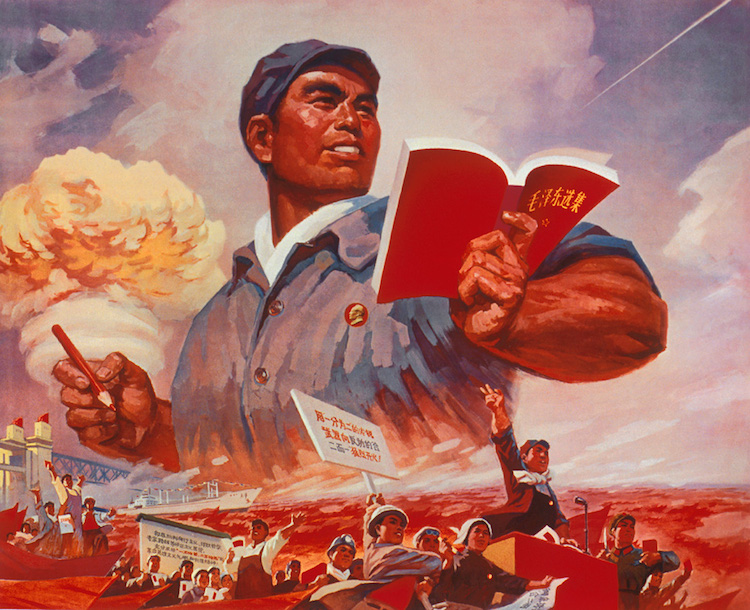What is the only book whose circulation can compete with The Bible? It is, of course, Quotations From Chairman Mao, also known as the Little Red Book. These days, sadly, much like the Word of God, Mao’s popular text ain’t nearly as read as it used to be. But boy, did it use to be.
Publishing history began at the 1959 Lushan Conference, which saw Defense Minister and Great Leap Forward critic Peng Dehuai purged, and Lin Biao ascend to the role of Mao’s heir apparent. Lin preached that “Mao Zedong Thought is the pinnacle of Marxism-Leninism” and a “shortcut to learning Marxism-Leninism”. Soon after began the mass fervor of learning and adopting Mao Zedong Thought across China.
The first edition of Quotations was compiled by the Liberation Army Daily, who picked 25 subjects and 267 sayings from Mao’s articles and speeches.
“Once grasped by all common Chinese people, Mao’s thought will be a powerful atomic bomb,” wrote Lin in the book. The learning frenzy that would lead to Mao’s personality cult thus began in the PLA, but soon spread to every household. Over the next three years, books on Marxist-Leninism made way for Mao to ensure “99 percent of Chinese carefully study Chairman Mao’s sayings.”
To make it convenient to learn them anytime, anyplace, the quotations were adapted to a size suitable for most pockets. By 1966, about 300 mainland publishers were printing the book, to ensure that every Chinese had a copy to hand. To print more than 5 billion copies, it is estimated that 650,000 tons of paper was used, more than the total amount (593,400 tons) for all other books printed in China from 1950 to 1965. By early 1967, Quotations had been published in 117 countries around the world, with an inscription for the international version by Lin: “Proletariat around the world, unite.”
Sayings such as “Political power grows out of the barrel of a gun”, “Serve the People”, “We must liberate Taiwan” and “Women hold up half the sky” began to be quoted in newspapers around the world – back in China, they spread to books, stamps, trains, planes and military automobiles, even temples.
Before mealtimes, families would hold a small ceremony, facing Mao’s image, holding the book over their heads and reciting together loudly “Our reddest sun, our most respected great leader, Chairman Mao, live forever, forever, forever!”
This zealous worship stopped abruptly with the downfall of the Gang of Four in 1976. The propaganda department stopped publishing the Quotations, even describing it as a “noxious book that the ambitious Lin Biao has used to acheive his political goals.”
Yet the book remains popular among the nostalgic, and pirate copies are readily available at tourist sites everywhere. Late last year in December, a new edition of the text was published to commemorate the 120th anniversary of Mao’s birth.
Chen Yu, chief editor and PLA academic researcher, says the forthcoming publication has no political motive. “The Party’s official comment on Mao will never change once the slogan ‘Long live the unbeatable Mao Zedong Thought’ is on Xinhua Men at Zhongnanhai, and Mao’s photo still hangs in Tiananmen,” said Chen.





















0 User Comments